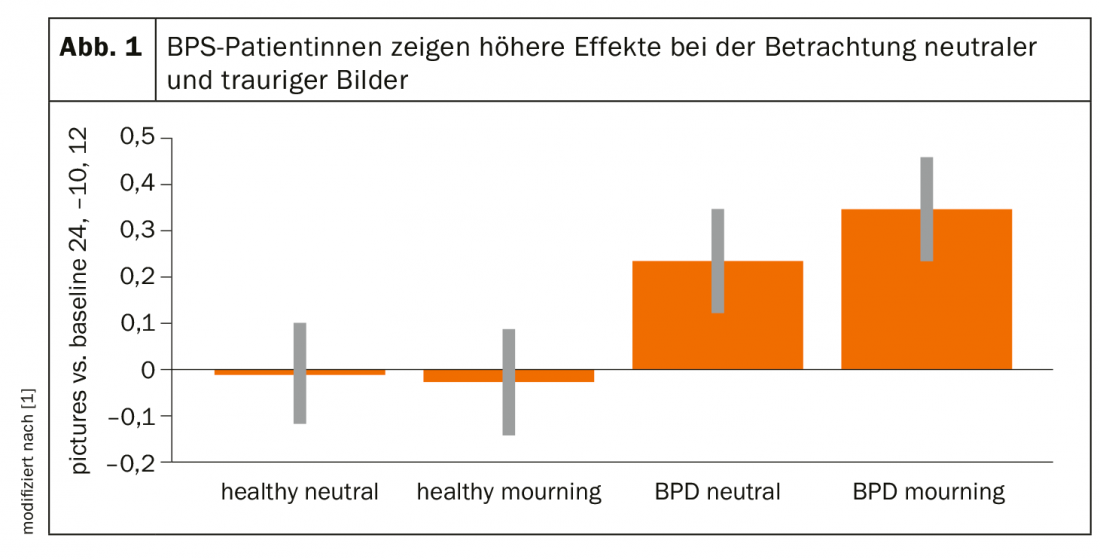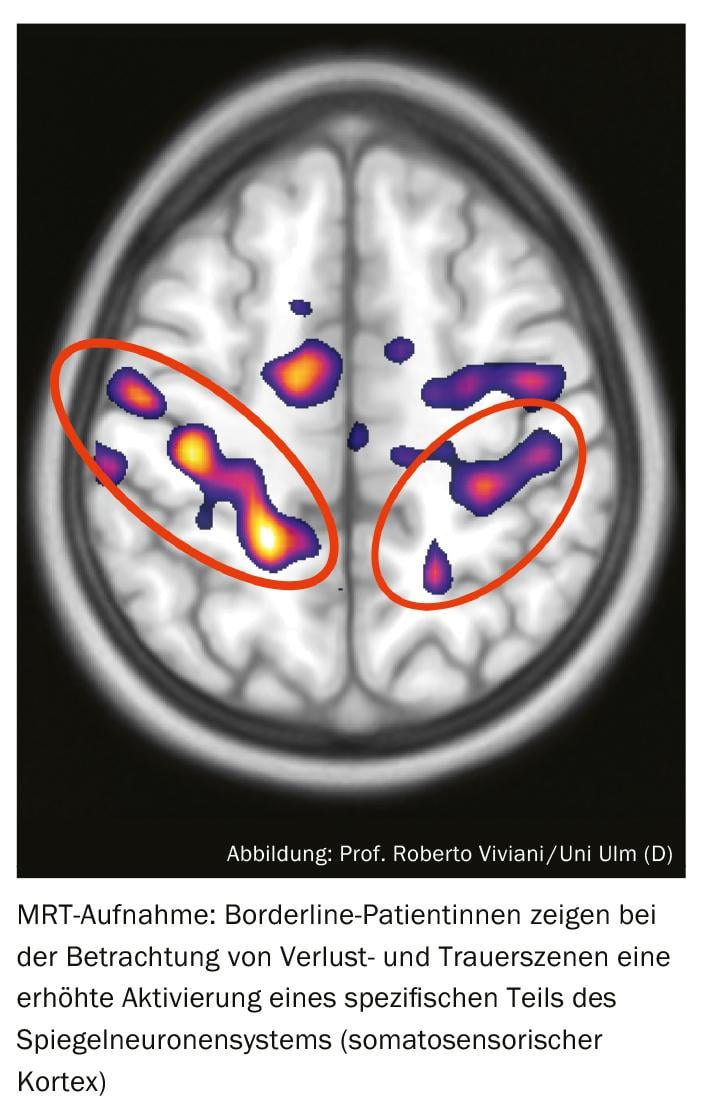Borderline syndrome does not affect patients alone. But partners and family suffer. Recent research has now found that the emotional hypersensitivity of affected individuals can be linked to increased activity of specific mirror neurons.
Extreme mood swings, impulsivity, and conflictual behavior are major symptoms of boderline syndrome (BPD). Especially young women suffer from this complex personality disorder. A functional imaging study now examined the patients’ brain activity and demonstrated that increased activity of specific mirror neurons accompanies emotional dysregulation. Mirror neurons, located in the prefrontal and sensory cortex of the brain, are activated by external perception of feelings and observation of actions. Thus, they play a key role in the development of empathy skills. BPD patients react particularly strongly to scenes of loss and grief, as a result of which certain areas in the mirror neuron system were significantly more activated than in the control group. This finding could explain their susceptibility to negative emotions in particular. Also, an above-average number of BPD patients suffer from depression.

Understand the counterpart better
Another surprising result was revealed by the MRI scans: The area in the prefrontal cortex that is crucial for the cognitive assessment of emotional states of others was much less activated in contrast to the control group. This area is responsible for mentalization, that is, for the reflective classification of emotional perceptions. This can be used to assess the intentions and motivations of other people. This could be an explanation for why borderline sufferers find it so difficult to empathize with others and adopt their perspective. The results of the study are well consistent with the known picture of the personality disorder and may help to elucidate the complex psychological mechanisms behind it. The authors hope that it may be possible to find starting points that help those affected to reflect on communication situations and better understand their counterparts.
Further reading:
- Sosic-Vasic Z, Eberhardt J, Bosch JE, et al: Mirror neuron activations in encoding of psychic pain in borderline personality disorder. Neuroimage Clin. 2019; 22: 101737.
Source: “Overcome by feelings – Borderline patients show increased mirror neuron activity”, 20.03.2019, University of Ulm (D).
InFo NEUROLOGY & PSYCHIATRY 2019; 17(6): 34.












